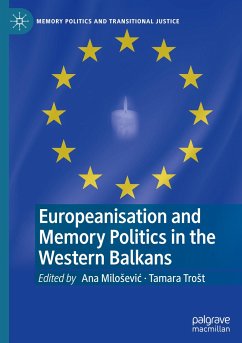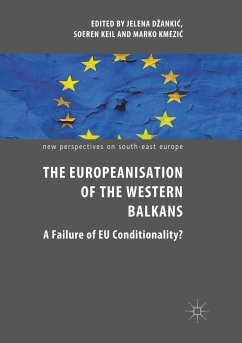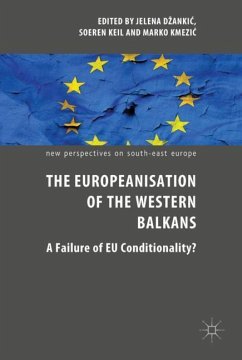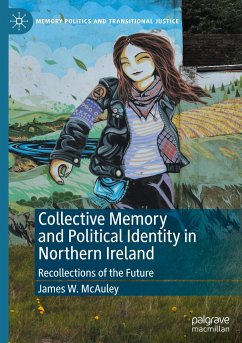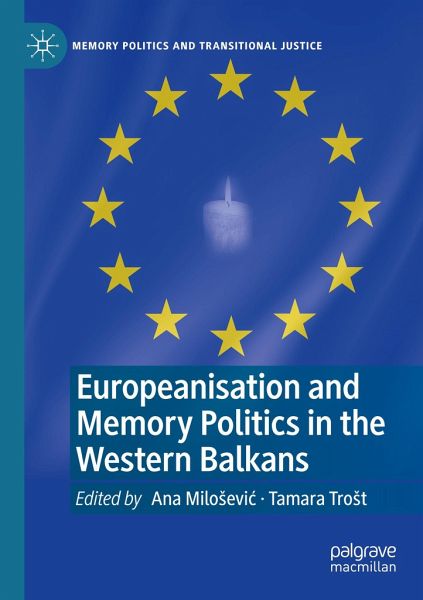
Europeanisation and Memory Politics in the Western Balkans
Versandkostenfrei!
Versandfertig in 6-10 Tagen
91,99 €
inkl. MwSt.

PAYBACK Punkte
46 °P sammeln!
This volume explores how the process of European integration has influenced collective memory in the countries of the Western Balkans. In the region, there is still no shared understanding of the causes (and consequences) of the Yugoslav wars. The conflicts of the 1990s but also of WWII and its aftermath have created "ethnically confined" memory cultures. As such, divergent interpretations of history continue to trigger confrontations between neighboring countries and hinder the creation of a joint EU perspective. In this volume, the authors examine how these "memory wars" impact the European ...
This volume explores how the process of European integration has influenced collective memory in the countries of the Western Balkans. In the region, there is still no shared understanding of the causes (and consequences) of the Yugoslav wars. The conflicts of the 1990s but also of WWII and its aftermath have created "ethnically confined" memory cultures. As such, divergent interpretations of history continue to trigger confrontations between neighboring countries and hinder the creation of a joint EU perspective. In this volume, the authors examine how these "memory wars" impact the European dimension - by becoming a tool to either support or oppose Europeanisation. The contributors focus on how and why memory is renegotiated, exhibited, adjusted, or ignored in the Europeanisation process.





